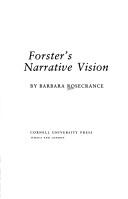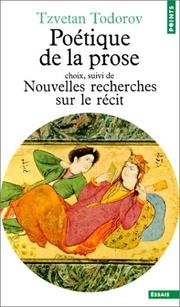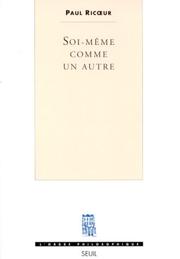| Listing 1 - 7 of 7 |
Sort by
|

ISBN: 0801415020 Year: 1982 Publisher: Ithaca (N.Y.) Cornell university press
Abstract | Keywords | Export | Availability | Bookmark
 Loading...
Loading...Choose an application
- Reference Manager
- EndNote
- RefWorks (Direct export to RefWorks)
Narration (Rhetoric) --- History --- Forster, E. M. --- Technique.

ISBN: 0416742300 0416742203 0415042941 9780415042949 9780416742305 9780416742206 Year: 1997 Publisher: London : Routledge,
Abstract | Keywords | Export | Availability | Bookmark
 Loading...
Loading...Choose an application
- Reference Manager
- EndNote
- RefWorks (Direct export to RefWorks)
Fiction --- Literature --- anno 1900-1999 --- Narration (Rhetoric) --- 82-3 --- 82-3 Proza. Fictie. Narratologie --- Proza. Fictie. Narratologie --- Narrative (Rhetoric) --- Narrative writing --- Rhetoric --- Discourse analysis, Narrative --- Narratees (Rhetoric) --- 82.08 --- 82.08 Literaire activiteiten. Literaire technieken --- Literaire activiteiten. Literaire technieken --- Narration (Rhetoric). --- Narration --- 82-3 Fiction. Prose narrative --- Fiction. Prose narrative --- Rhétorique --- Imaginaire
Book
ISBN: 9062838006 Year: 1990 Publisher: Muiderberg : Coutinho,
Abstract | Keywords | Export | Availability | Bookmark
 Loading...
Loading...Choose an application
- Reference Manager
- EndNote
- RefWorks (Direct export to RefWorks)

ISBN: 2020056933 2020020378 9782020056939 Year: 1978 Volume: 120 Publisher: Paris: Seuil,
Abstract | Keywords | Export | Availability | Bookmark
 Loading...
Loading...Choose an application
- Reference Manager
- EndNote
- RefWorks (Direct export to RefWorks)
Poétique de la prose : la rhétorique classique nommait oxymoron ce type de rapprochement des contraires, cette exploitation et contestation du principe d'identité et de contradiction. Une même complicité des contraires traverse ce livre. Poétique et lecture : l'analyse de texte particulier transforme la théorie, mais n'est possible qu'à partir d'une théorie antérieure, qui ne peut venir que d'une autre analyse... Différence et ressemblance : ces deux catégories régissent le fonctionnement du récit, l'une contre l'autre, l'une à travers l'autre. Langage et littérature : celle-ci, disait déjà Valéry, "ne peut pas être autre chose qu'une sorte d'extension et d'applications de certaines propriétés du langage" ; mais le langage lui-même, peut-on le connaître sans interroger au préalable ce qu'on s'accordera à tenir pour sa théorie : la littérature ? Questions modulées et transformées, d'un chapitre à l'autre, à l'aide de textes comme l'"Odyssée", la "Quête du Graal", les "Milles et une nuits", le "Décaméron", les récits de Henry James ou à travers la réflexion de quelques "auteurs" : Constant, Khlebnikov, Artaud. A l'horizon de cette recherche nécessairement toujours à recommencer : une théorie formelle de la littérature.
#GGSB: Literatuur (letterkunde) --- Fiction. --- Roman --- Fiction --- Narration (Rhetoric) --- Criticism --- Poetics --- Literatuur (letterkunde) --- Récit --- Théorie de la fiction. --- Analyse du discours narratif. --- Poétique. --- Prose --- Fictions, Theory of. --- Discourse analysis, Narrative. --- Poetics. --- Prose literature. --- Esthétique.
Book
ISBN: 9023219341 9789023219347 Year: 1983 Volume: 14 Publisher: Assen: Van Gorcum,
Abstract | Keywords | Export | Availability | Bookmark
 Loading...
Loading...Choose an application
- Reference Manager
- EndNote
- RefWorks (Direct export to RefWorks)
Fiction --- First person narrative --- History and criticism --- -First person narrative --- Narrative, First person --- Literature --- Narration (Rhetoric) --- Point of view (Literature) --- Persona (Literature) --- Metafiction --- Novellas (Short novels) --- Novels --- Stories --- Novelists --- Technique --- Philosophy --- First person narrative. --- History and criticism. --- Narration à la première personne --- Roman --- Histoire et critique. --- Fiction - 20th century̨ - History and criticism

ISSN: 0768102X ISBN: 2020114585 9782020114585 Year: 1990 Publisher: Paris : Seuil,
Abstract | Keywords | Export | Availability | Bookmark
 Loading...
Loading...Choose an application
- Reference Manager
- EndNote
- RefWorks (Direct export to RefWorks)
Cogito --- Differentie (Filosofie) --- Différence (Philosophie) --- Identiteit (Filosofie) --- Identiteit (Filosofisch begrip) --- Identité (Concept philosophique) --- Identité (Philosophie) --- Ik (Filosofie) --- Même (Philosophie) --- Mêmeté (Philosophie) --- Principe d'identité --- Subject (Filosofie) --- Subject (Philosophy) --- Sujet (Philosophie) --- Divers (Philosophie) --- Diversité (Philosophie) --- Philosophical anthropology --- #GGSB: Filosofie --- #GGSB: Filosofie (20e eeuw) --- #GROL:SEMI-1-05'19' --- #gsdb5 --- Individu et société --- Langage --- Ontologie --- Identity (Philosophical concept) --- Self (Philosophy) --- Language and languages --- Narration (Rhetoric) --- Identity (Psychology) --- Ethics --- Philosophy --- Identité --- Langage et langues --- Narration --- Moi (Philosophie) --- Philosophie --- Difference (Philosophy) --- Filosofie --- Filosofie (20e eeuw) --- Language and languages - Philosophy
Book
ISBN: 9027208700 9027209359 9027209367 9789027208705 9027259887 9027259062 9027259070 9789027209351 9789027209368 9789027259882 9789027259066 9789027259073 Year: 1973 Publisher: Amsterdam: John Benjamins,
Abstract | Keywords | Export | Availability | Bookmark
 Loading...
Loading...Choose an application
- Reference Manager
- EndNote
- RefWorks (Direct export to RefWorks)
"English Pronunciation Instruction: Research-based insights presents recent research on L2 English pronunciation including pedagogical implications and applications, and seeks to bridge the gulf between pronunciation research and teaching practice. The volume's 15 chapters cover a range of aspects that are central to pronunciation teaching, including the teaching of different segmental and suprasegmental features, teachers' and learners' views and practices, types and sources of learners' errors, feedback and assessment, tools and strategies for pronunciation instruction, reactions towards accented speech, as well as the connection between research and teaching. Chapters offer a fully developed section on pedagogical implications with insightful suggestions for classroom instruction. This format and the variety of topics will be informative for researchers, language teachers, and students interested in English pronunciation, as it explores the diverse challenges learners of different L1 backgrounds face, and also provides research-informed techniques and recommendations on how to cope with them"--
#BIBC:boekadm
| Listing 1 - 7 of 7 |
Sort by
|

 Search
Search Feedback
Feedback About UniCat
About UniCat  Help
Help News
News